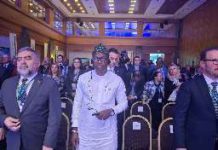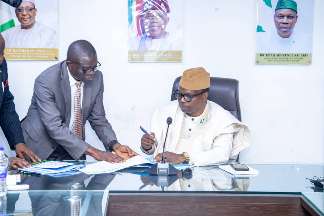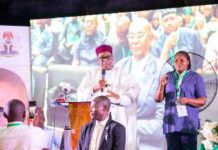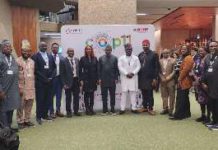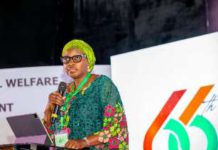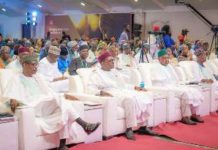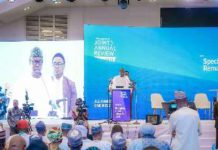By: Joy Odor/Kaduna
A University Don at the Kaduna State University, Dr. Yusuf Nadabo has observed that there is need for journalists in Nigeria to dive into reporting science discoveries such as virus, evolution, artificial intelligence, global in change and its global warming and translate it to lay language for the benefit of human race.
The newly inaugurated Chairman of the Governing Council, School of Midwifery Tudun Wada and also the Head of Department Anatomy, Kaduna State University made the observation while presenting a paper titled: ‘The Imperative of Science Journalism’ at the African Climate Reporters First Annual on Climate Change Conference in collaboration with the Womanhood Foundation of Nigeria with the Theme: “the Effect of Climate Change in Nigeria” in Kaduna on Wednesday.
According to him, journalists in the field should master the terms of scientific terminologies, put scientific discoveries and controversies into historical, personnel, political and economic context and reduce it for the common man to understand and comprehend.
“Reporting science could be seen as the most difficult aspect of journalism but I can tell you that reporting science is not difficult. Reporting science entails verification of facts and figures, and the scientific terms must be properly used for proper consumption of the public,” he said.
Dr. Nadabo informed that science reporters played a crucial role in advancing the social, political conversation about science by communicating an independent assessment, research and discoveries which can bring about exciting news, remarkable scientific achievement to public attention while informing the citizen about critical issues to aid ethic and promising debates.
The University Don continue to affirmed that science journalists can provide scientific background and breaking news about earthquakes and oil spill, allowing the public to the menace of desertification and medical environment and other effects of global and climate change.
He therefore emphasized that there is a considerable need for individuals to act as broadcast between scientific and general public and looked forward for Nigeria journalists especially Kaduna State to accept the challenges of reporting on climate change and what is going on in the scientific area to relate it for the public for general understanding awareness.
Also in the paper presentation titled Climate Change and Parasitic Shift: “Strategy for the Fulani of Northern” by a Lecturer at the Ahmadu Bello University Zaria, Mallam Shuaibu Mohammed attributed the consequences of climate change in shifting boundaries to pathogens and infectious diseases which is critical factor that limits migration of Fulani in Northern Nigeria.
Others, he said, include vector-borne diseases a called ‘sleeping sickness’ that affected over 70,000 people every year while estimated 60 million people in the sub-Sharan Africa are at risk of the infection.
Earlier in his remark, a Lecturer at the Womanhood Foundation School of Health Science, Mallam Nurudeen Bello described climate change as the burning of fossil fuels such as oil, coal, deforestation and agriculture as human activities which emits greenhouse gasses into the atmosphere primarily carbon dioxide.
He advised Kaduna State journalists to key more into reporting on climate change, global warming for sustenance of Nigerians and its danger awareness to human survival rather than focusing always on political and non-profitable news to the public.




